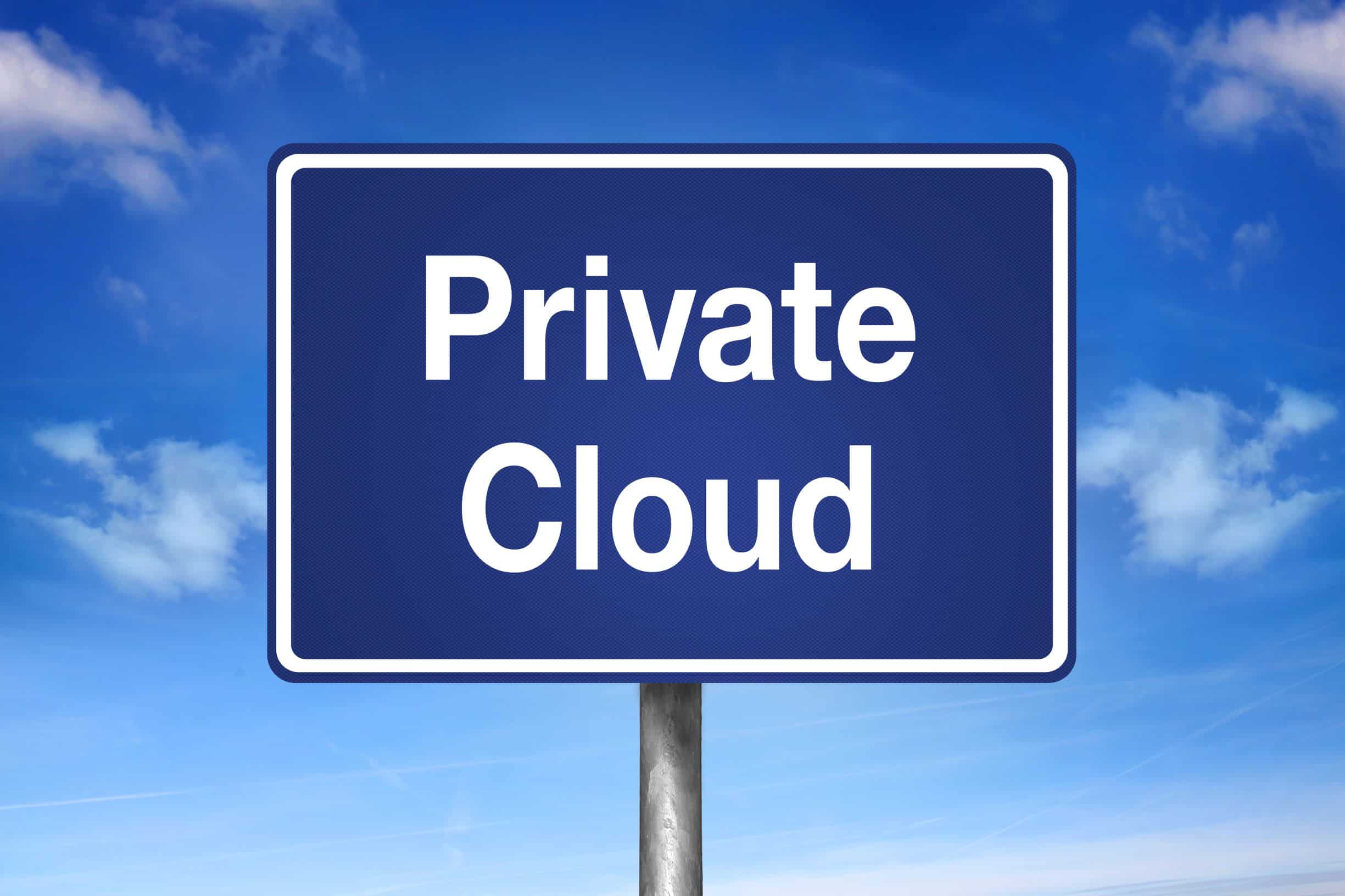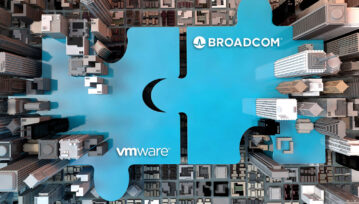Can Your Organization Benefit from a Private Cloud Solution?
Connectria
Author
Date
April 25, 2019

Organizations across a wide spectrum of industries are making the smart move and migrating to cloud platforms, but many others have yet to undertake this transition. Why? Because making a decision on cloud provider comes after simply deciding what kind of cloud to utilize in the first place. And while many in the market perceive that the public cloud is the inevitable destination for businesses of all sizes, we wouldn’t be so sure. Despite the popularity of public cloud solutions like AWS and Azure, a private cloud deployment can often be the right decision for a business or enterprise. Understandably, this crucial first decision can give even the most expert among us pause when deciding which path to take with their business infrastructure.
While public hyper-scale cloud providers have clients with famous names, for many organizations these days a private cloud solution is the more appropriate choice. The advantages of a private cloud integration are numerous. This article will review some of the biggest ones that will benefit your infrastructure.
What is Cloud Computing?
According to PC Magazine, when it comes to ‘cloud’ in a computing context, it refers to “storing and accessing data and programs over the Internet instead of your computer’s hard drive.” The servers running the programs and storing the data are generally hosted via a cloud service provider.
When it comes to public cloud computing, Gartner defines it as a “style of computing where scalable and elastic IT-enabled capabilities are provided as a service to external customers using Internet technologies—i.e., public cloud computing uses cloud computing technologies to support customers that are external to the provider’s organization.”
Public cloud services are generally offered on a pay-per-use model in a multi-tenant environment. This simply means that data for multiple organizations may reside on the same physical server across multiple locations or regions. And those same organizations are paying for the services they actually use instead of paying a flat rate.
Gartner defines private cloud computing as a type of cloud computing “that is used by only one organization, or that ensures that an organization is completely isolated from others.” Therefore, because the private cloud is dedicated to only one organization, a private cloud can be engineered to meet your specific needs.
Private cloud solutions provide flexibility, cost savings, security, and control benefits and are often a near-perfect solution for those organizations with customization requirements or predictable workloads, as well as those in regulated industries such as health and financial organizations.
The Main Benefits of a Private Cloud Environment
Opting to run your IT systems in a private cloud environment enables flexibility, strong security, regulatory compliance, and guaranteed resource availability. Additionally, some organizations are finding that this solution provides them with beneficial cost savings.
With private cloud computing, companies utilize their own servers to build their own infrastructure. Alternatively, they can employ a third-party provider like Connectria to provide the resources that their business needs. For private cloud computing, the servers can be either on-site or off-site.
In on-site setup, the servers are located within the organization’s premises or datacenter and are managed and maintained by the company’s IT staff or their managed service provider. For an off-site setup for example, the company servers may be located at Connectria’s data center and the organization’s staff accesses the servers through private and secure network links.
Arguably, one of the most important advantages of a private cloud is that the organization is in complete control. With the cloud hardware within the confines of the company’s own campus or provided by a top-rated partner, they have complete physical control and can limit remote access to trusted users via secure connections. Of course, this means that the end user has more oversight on who utilizes or even touches their IT devices and applications.
This also increases control over security against malware, phishing, and hacking as it puts the private cloud behind the organization’s own firewall. Security notwithstanding, when it comes to configuration, scalability, storage, and resource management, the company is in complete control.
Furthermore, those within the organization or service providers that have the required permissions can have unlimited visibility to every component of the private cloud architecture. This becomes quite useful when deeper analysis of performance issues or overall usage become necessary.
The protected environment and flexibility of a private cloud make it much easier for teams to customize applications in order to meet local as well as national regulations. Since security and compliance issues are inherently addressed within the private cloud, financial institutions and other organizations with critical personal data will likely find that it is more acquiescent to their business needs.
Benefits of Managed Cloud Platforms
No matter if it’s a private, public, or hybrid-cloud solution, many organizations want to spend time running their business as opposed to their infrastructure. Organizations that choose a partnership with Connectria are able to leverage a dedicated infrastructure without having to invest in expensive hardware and yet still maintain the control and flexibility that they desire and require.
With a managed cloud solution, the business gets to take advantage of 24×7 advanced monitoring and management to ensure that the entire environment is always up and running at peak performance. This includes infrastructure, storage, networking, database, application and of course, cloud.
When partnering with Connectria, a huge benefit is the 24×7 comprehensive security monitoring and management by our Security Operations Center (SOC). This team works diligently to ensure that the organization’s applications and data are secure, including both HIPAA/HITECH and PCI DSS compliance.
Managed cloud solutions from Connectria provide around the clock support that includes 24×7 monitoring of unused, underutilized, or inappropriately used resources in order to minimize costs and maximize the client’s budget. Of course companies that have understaffed or under-skilled IT teams can benefit from moving to a managed cloud platform as well, as this allows organizations to focus on other areas of the business instead of the infrastructure.
Bringing Together the Top Benefits of a Private Cloud
As much as a private cloud resembles a public cloud in many ways, the fact that a private environment allows for even greater control and customization is a real difference maker for many organizations. Fortunately, it is now a lot easier to adopt private cloud technology for both smaller businesses and the Enterprise.
With the private cloud, your organization can save both time and money and rest easy knowing that your environment is secure. With Connectria, you can have your cloud and control it too.
After all… it’s your infrastructure.
Keep Reading
Prepare for the future
Tell us about your current environment and we’ll show you the best path forward.
Fast track your project. Give us a call.






